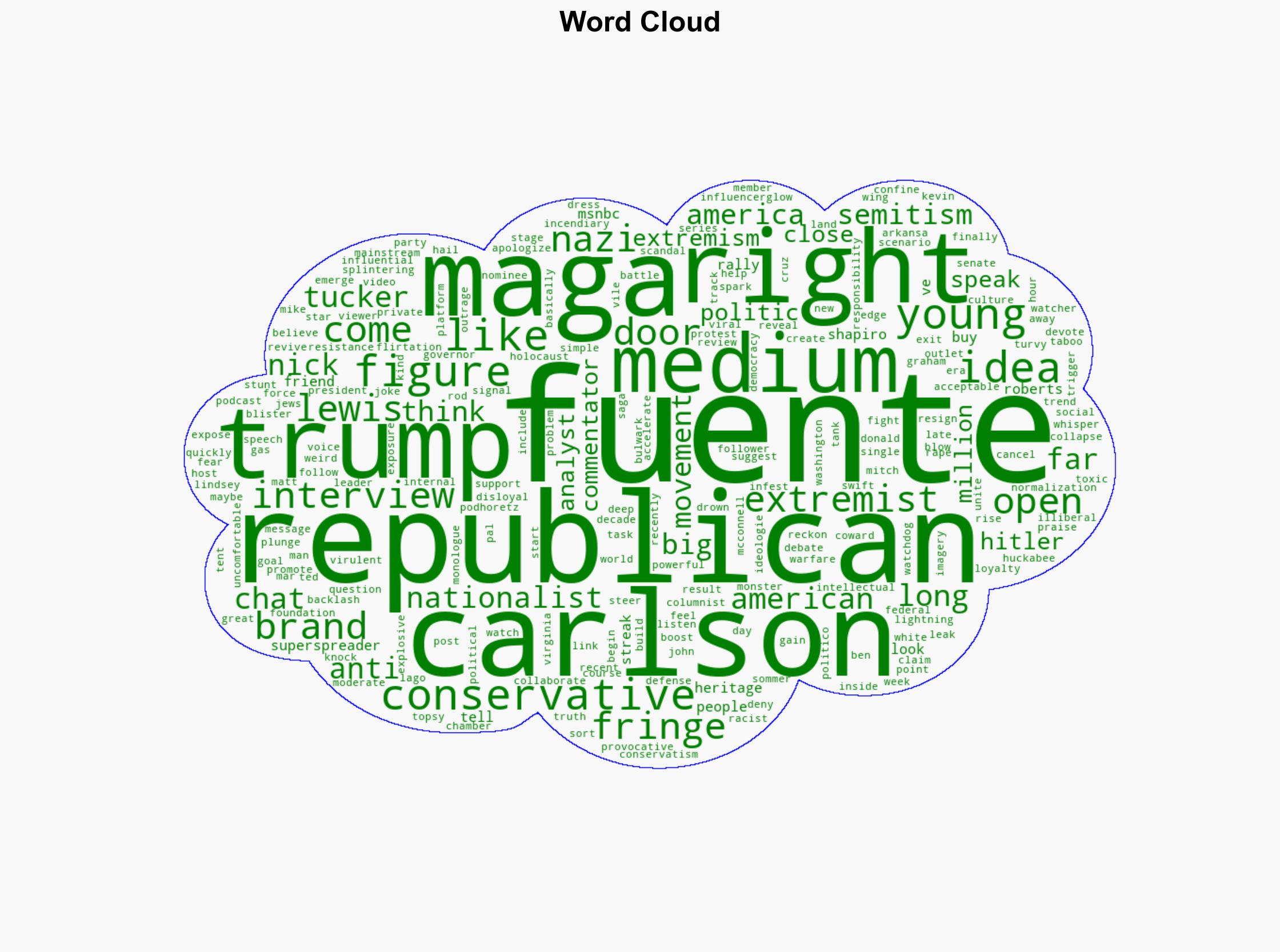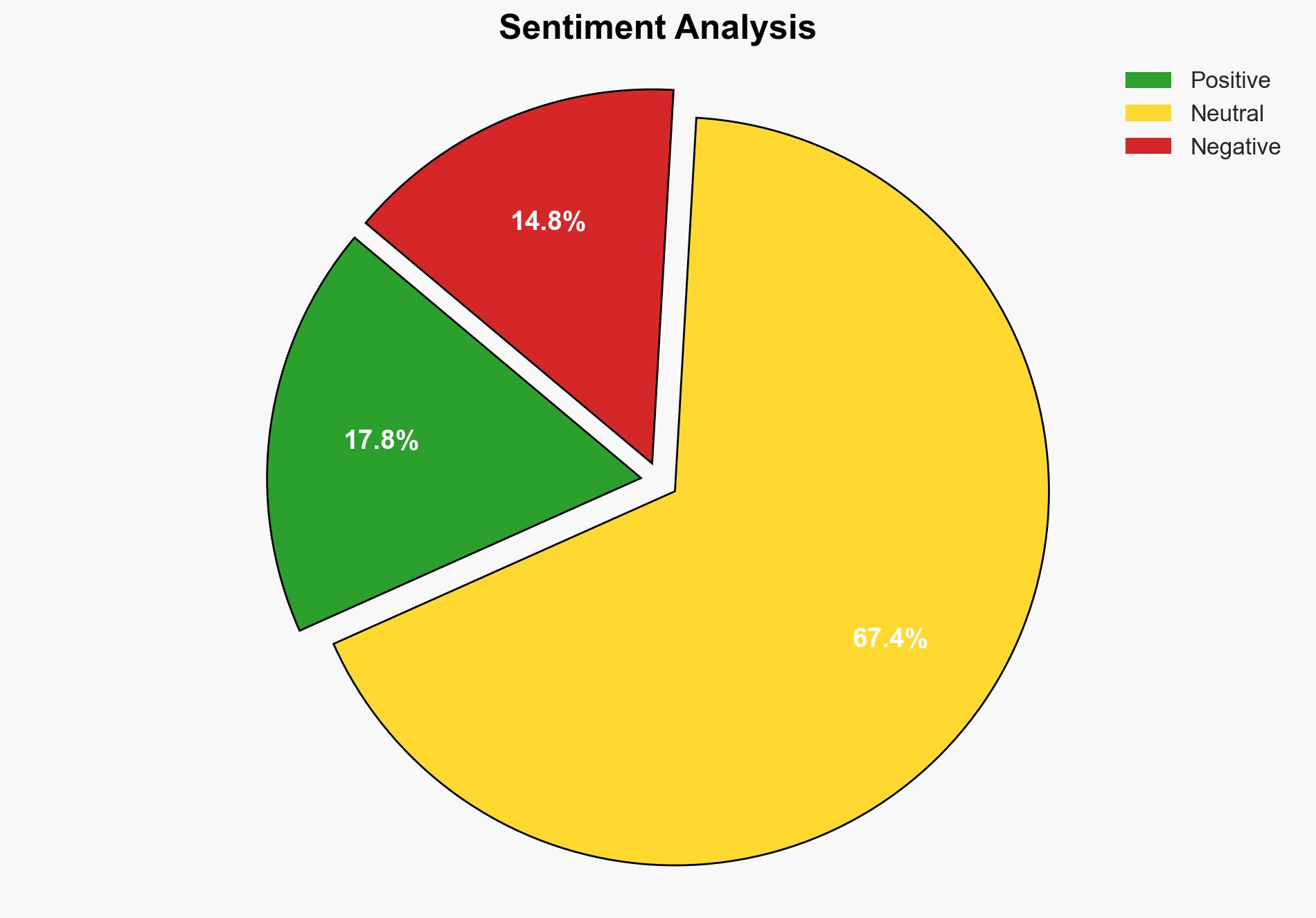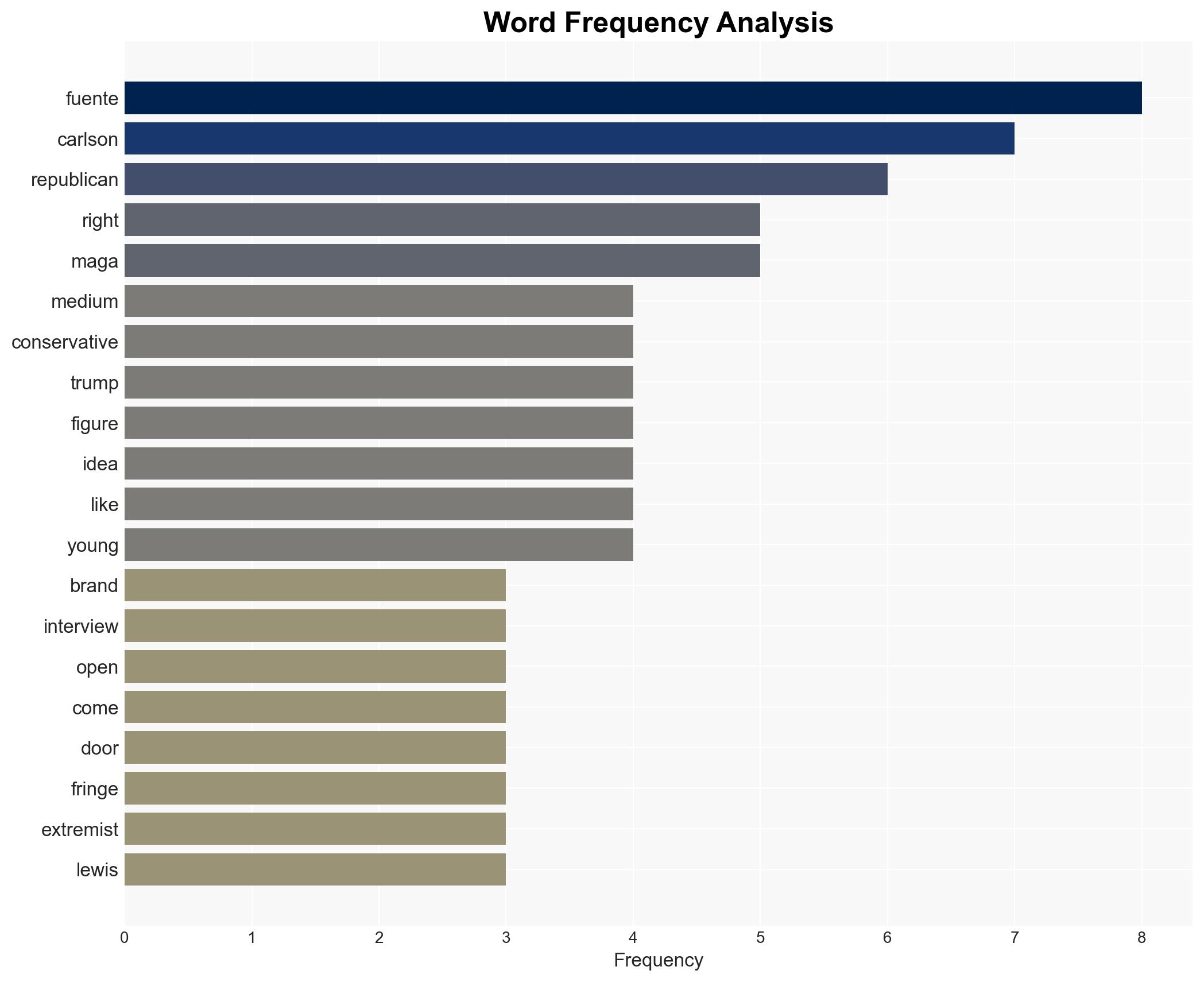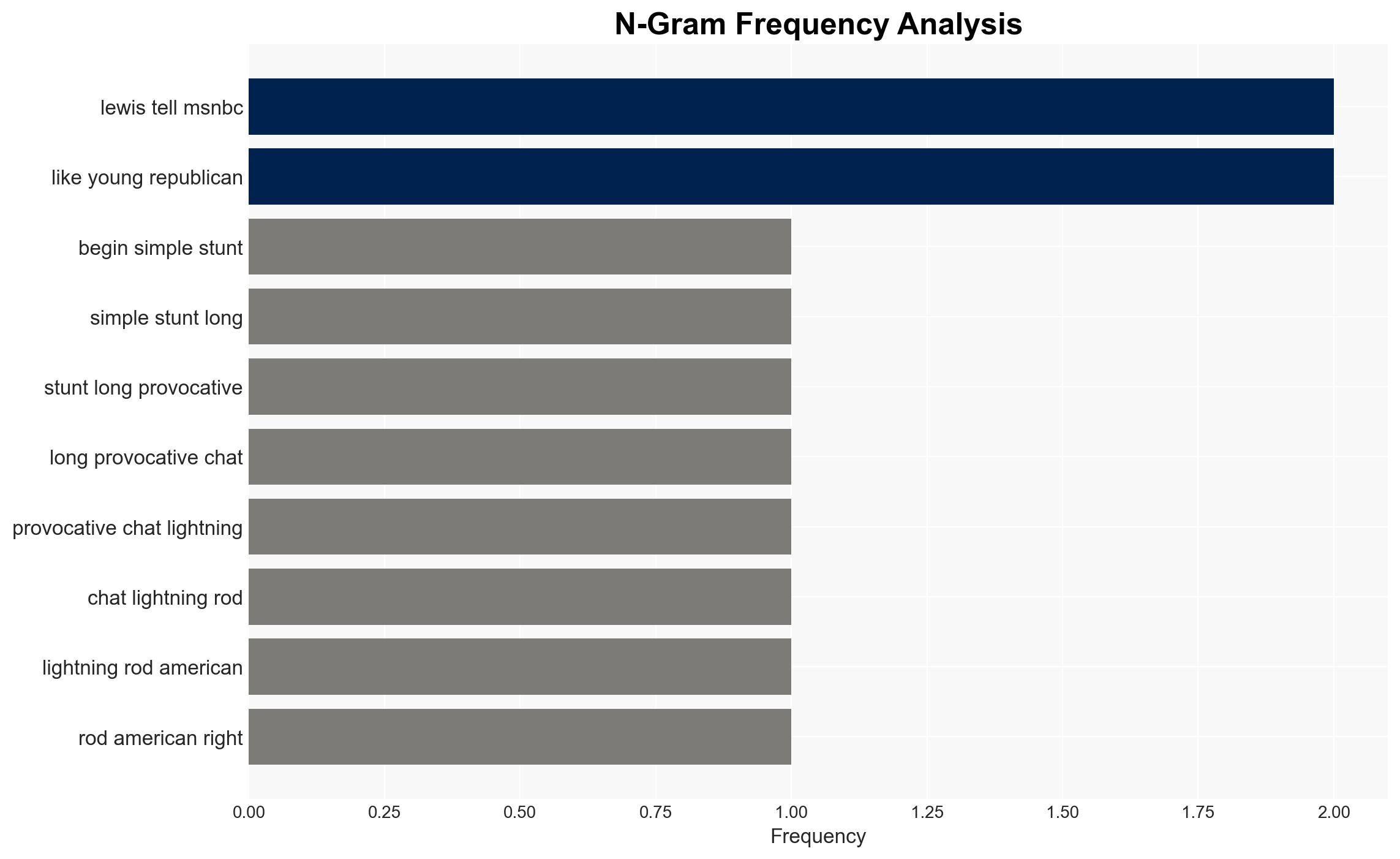MAGA civil war How a white nationalist blew up the American right – Digital Journal
Published on: 2025-11-14
AI-powered OSINT brief from verified open sources. Automated NLP signal extraction with human verification. See our Methodology and Why WorldWideWatchers.
Intelligence Report: MAGA civil war How a white nationalist blew up the American right – Digital Journal
1. BLUF (Bottom Line Up Front)
The interview between Tucker Carlson and Nick Fuentes has amplified extremist ideologies within the MAGA movement, potentially normalizing such ideas within mainstream conservatism. The most supported hypothesis is that this event signifies a deeper entrenchment of extremist views within the Republican Party, posing a significant threat to its cohesion and public image. Confidence Level: Moderate. Recommended action includes strategic distancing by key Republican figures from extremist elements and reinforcing moderate conservative values.
2. Competing Hypotheses
Hypothesis 1: The Carlson-Fuentes interview represents a strategic attempt to mainstream extremist views within the Republican Party, potentially reshaping its ideological base.
Hypothesis 2: The interview is an isolated incident driven by individual agendas, unlikely to have a lasting impact on the broader conservative movement.
Hypothesis 1 is more supported due to the swift backlash from prominent Republican figures and the historical trend of increasing extremist rhetoric within the MAGA movement. However, the potential for Hypothesis 2 remains due to the unpredictable nature of media cycles and public attention spans.
3. Key Assumptions and Red Flags
Assumptions include the belief that extremist views are not yet fully mainstream within the Republican Party and that key figures will act to mitigate this trend. Red flags include the rapid dissemination of extremist content and the potential for deceptive narratives to gain traction, particularly if influential media figures continue to provide platforms for such ideologies.
4. Implications and Strategic Risks
The normalization of extremist views could lead to increased political polarization, undermining democratic processes and eroding public trust in conservative institutions. Cyber threats may increase as extremist groups leverage digital platforms for recruitment and propaganda. Economically, brands and donors may distance themselves from the Republican Party, impacting funding and support. Informationally, the spread of extremist ideologies could further fracture the party, leading to internal conflicts and a potential split.
5. Recommendations and Outlook
- Republican leaders should publicly denounce extremist ideologies and reinforce moderate conservative values to maintain party cohesion.
- Engage in strategic communication campaigns to counteract extremist narratives and promote unity.
- Monitor and regulate digital platforms to prevent the spread of extremist content.
- Best-case scenario: The party successfully distances itself from extremist elements, restoring public confidence.
- Worst-case scenario: Extremist ideologies gain further traction, leading to a significant split within the party.
- Most-likely scenario: Continued internal conflict with periodic flare-ups of extremist rhetoric, requiring ongoing management and mitigation efforts.
6. Key Individuals and Entities
Tucker Carlson, Nick Fuentes, Mike Huckabee, John Podhoretz, Ted Cruz, Mitch McConnell, Lindsey Graham, Kevin Roberts, Ben Shapiro, Matt Lewis.
7. Thematic Tags
National Security Threats, Political Polarization, Extremism, Media Influence, Republican Party Dynamics
Structured Analytic Techniques Applied
- Cognitive Bias Stress Test: Expose and correct potential biases in assessments through red-teaming and structured challenge.
- Bayesian Scenario Modeling: Forecast futures under uncertainty via probabilistic logic.
- Network Influence Mapping: Map relationships between state and non-state actors for impact estimation.
- Narrative Pattern Analysis: Deconstruct and track propaganda or influence narratives.
Explore more:
National Security Threats Briefs ·
Daily Summary ·
Methodology





